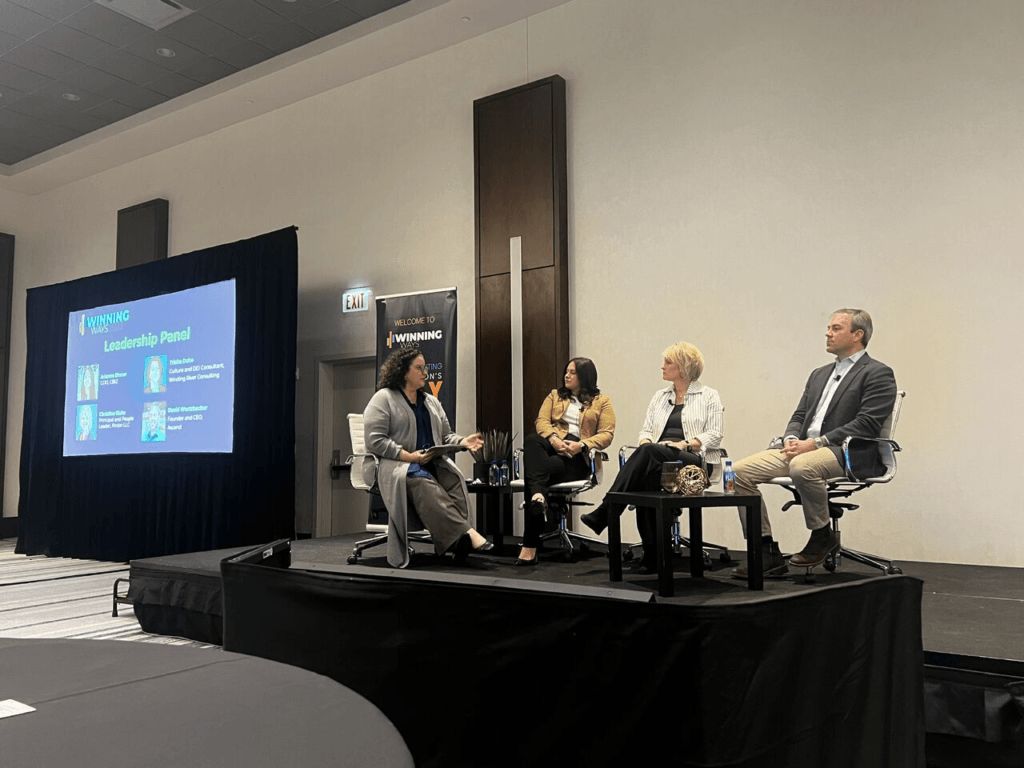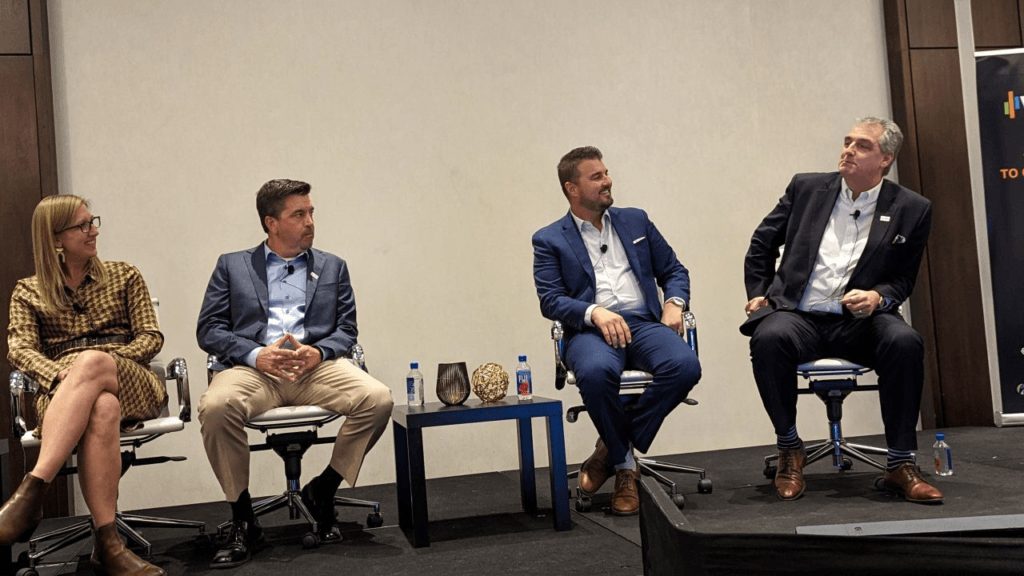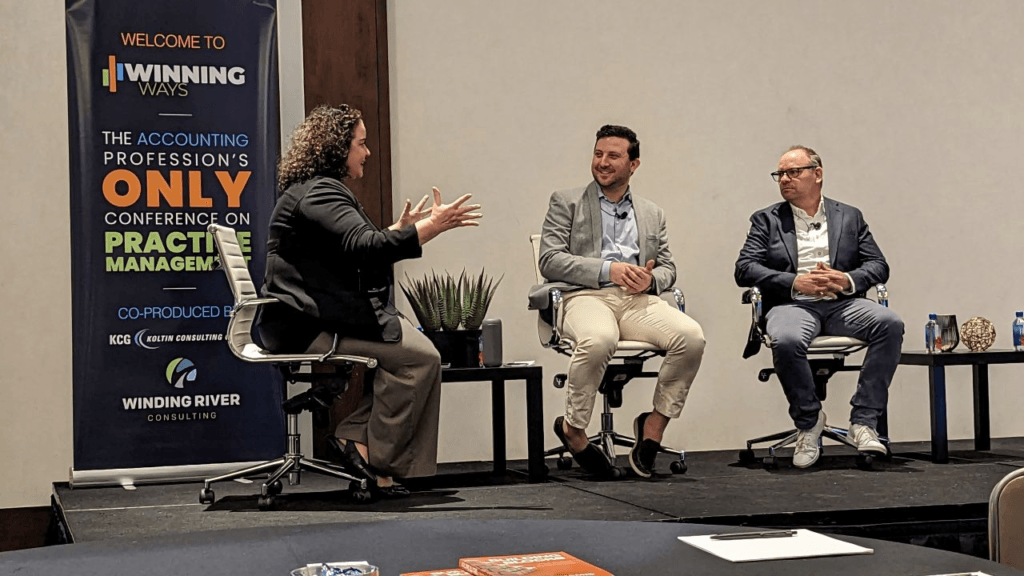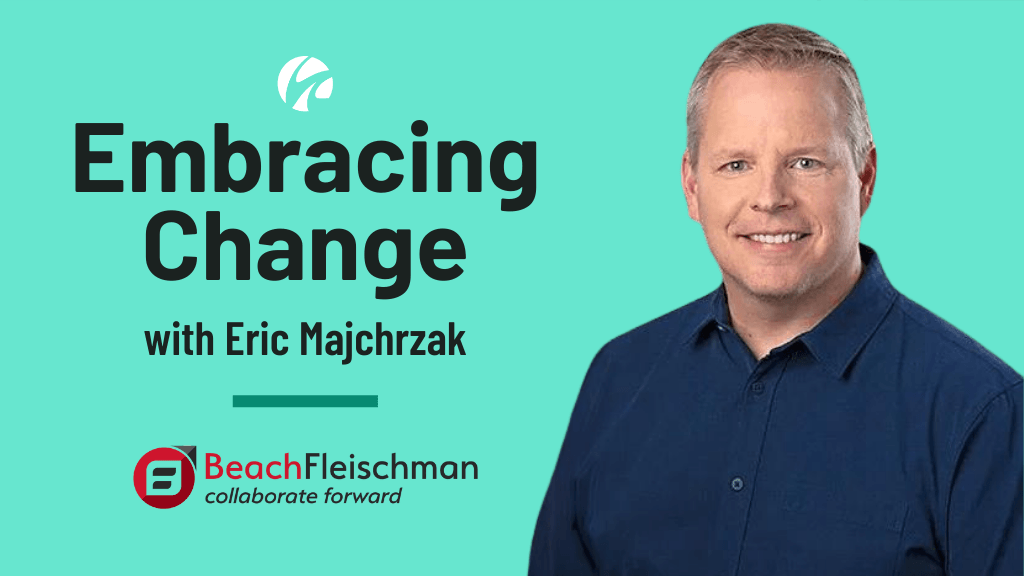2 min read
Winning Ways: The Accounting Profession’s Only Conference on Practice Management
*Updated September 7, 2022: We are excited to announce our latest addition to the agenda, our panel on outsourcing. The panel titled “Finding an...
4 min read
by:
 Trisha Daho
on
Dec 13, 2023
Trisha Daho
on
Dec 13, 2023

Trisha, a former Big 4 partner, led diverse teams, delivering billions in value for Fortune 500 companies and startups. As a rapid-growth strategist, she created thriving practices and developed leaders who achieved roles like CFOs and CEOs.
Table of Contents
Some of the accounting profession’s top thought leaders communed for many impactful discussions around how to best effectuate an optimal work culture in a rapidly changing and permanently shifting industry. Over 60 firms from many countries were represented and actively participated. The Pandemic, the move to a hybrid workplace, the continued growth of offshoring and onshoring, the impending recession, the constraints on the pool of new hires, the massive growth of mergers and PE firm ownership, and many more topics were discussed and contemplated throughout this one-of-a-kind industry conference. Here are some of the key takeaways:
Although retention at accounting firms is improving, at least in the near term, talent acquisition is still constrained by a few factors. First, the sheer number of college students majoring in accounting is down by 16-20% across the country. Second, younger employees are much more prone to job-hopping and need a deeper sense of connection with their own personal value in their careers compared to prior generations. Lastly, younger employees are less likely to stay at one firm for more than a few years.
So, what can be done? Well, most firms are focused on deploying some kind of offshoring or onshoring strategy in addition to regular merger activity. Firms are also (finally) starting to expand the list of possible majors from which to pull candidates, based on developing the real criteria and associated skill sets needed to be successful accountants. This also means firms need to develop more robust onboarding and professional development regimens that can be customized to each employee’s situation.
In addition, firms are exploring ways to make accounting as a culture more entrepreneurial in nature. For example, how can firms inspire earlier engagement in owning how the firm works, how it pursues new clients, and how it expands to fill the changing needs of clients? Finally, CULTURE. Strong cultures make for stickier employees that are more fully engaged and produce greater results for the firm. Some studies have stated that focusing on culture intentionally increases all other metrics by 800% over a 10-year period.
Most firms have enacted some semblance of a hybrid work policy, erring on the side of extreme flexibility to retain employees. And although that was the right move, important things are being lost when few are around in the office. Accounting will continue to be an apprenticeship model, one where one-on-one learning is still vital to quick and deep understanding, especially in situations where employees need greater guidance.
Additionally, the social connections we had before the pandemic are missed greatly, especially among GenZ and new employees. Those social connections allow people to develop a context for each other, allow employees to observe appropriate leader behavior, and allow rapport and trust to be established. So, culture building, in large part, still needs to take place very intentionally and in person. Teams will be happy to engage if you help them understand how these connections work toward developing both THEM and the culture overall.
The Pandemic has also left leaders handling the personal and mental health challenges of employees in ways they have never had to do in the past. Our younger employees are much more open about these challenges and need help to navigate both personal and professional responsibilities. It simply requires a different level of leadership and coaching skills. Developing new skill sets among leaders has become a major priority, especially as baby boomers retire and there are simply fewer leaders to take their places.
Firm owners continue to have a lot of choices to assess for how they grow. Mergers, both large and small, continue to be a constant stream of activity and more and more PE firms are entering the accounting industry looking for deals.
At Winning Ways, David Wurtzbacher (Founder and CEO of Ascend), Arianna Ehmer (COO of CBIZ), and Christina Ricke (Principal people Leader at Pinion LLC), discussed the importance of culture in these transactions is very much noted by all parties, but ironically, still a factor only after the deals are done as to the HOW of culture integration.

Deals have been canceled due to widely varied and incompatible cultures, but seldom do leader teams focus on intentional culture planning as part of merger preparation. This often leads to greater levels of attrition after the deal, less productivity, and anxious employees. The sooner these cultural imperatives become part of the overall planning process, the better the results, both short and long-term.
Culture and leadership are the reasons that 75% of people leave a firm according to a Gallup poll of over 1 million U.S. workers. That is a powerful statistic. Those firms that focus on holding themselves accountable to the tenets of a thriving culture win the talent wars; it’s as simple as that.
Our Managing Partner Panel at Winning Ways (featuring Josh Beck. Tom Barry, Jessica Freiburg, and Martin Clapson) discussed how firms innovate. Innovative firms are focused on leadership development and accountability, they are revamping how they define criteria for both performance management and talent acquisition, they are committed to both strong professional development and guidance and valuing each person’s individual contribution and support needs, and they establish a culture that literally holds the firm to account for these factors.

If firms can speak to these very factors transparently both internally and externally, they will have greater retention rates. Talent and retention strategies cannot be performative, they must be real, transparent, and measured. Importantly, employees do not expect perfection. They do, however, expect intentionality, lots of communication and transparency, and ultimately, accountability at the top.
The Winning Ways conference provided amazing insights, great conversations, and many solid roadmaps for all the ways culture shows up in an accounting firm. The bottom line is that culture wins the day, and being intentional is half the battle.
Hear from an Attendee:
“This was my first time attending and I thought it was wonderful. I enjoyed all of the panels and speakers and found little bits from everyone to take home and inspire change with. As a young woman in the industry, it really blew me away that I was represented by so many of the speakers and panelists. I think this choice in diversity will continue to show that as an industry we are trying and we succeeding.”
Interested in learning more about the Winning Ways Conference? Click here!


2 min read
*Updated September 7, 2022: We are excited to announce our latest addition to the agenda, our panel on outsourcing. The panel titled “Finding an...

4 min read
In a recent conversation, David Toth, Chief Growth Officer of Winding River Consulting, sat down with Eric Majchrzak, CEO and Principal of ...

5 min read
As a managing partner, you are busy running a professional services firm. You are playing a constant game of whack-a-mole, triaging incoming...